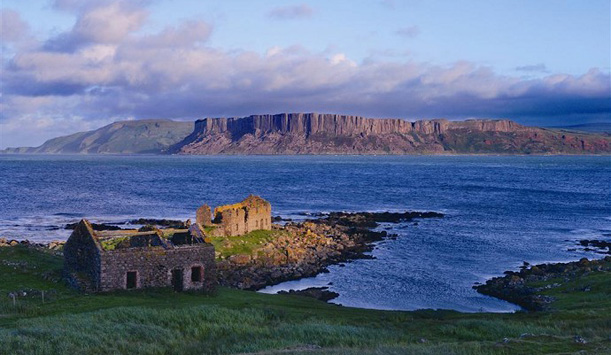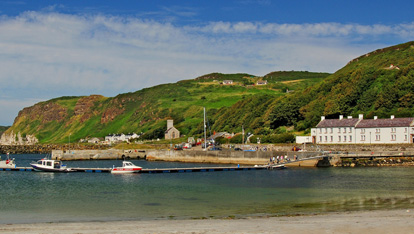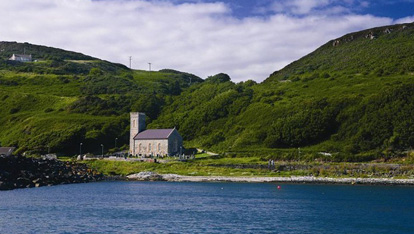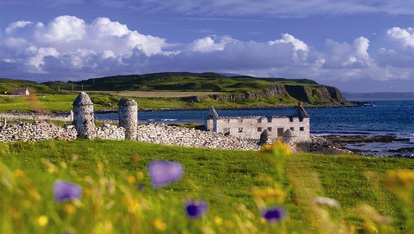Rathlin Island and Robert the Bruce
Did you ever hear the story about a tiny spider, an exiled king and the remote island in County Antrim that personified the proverb: if at first you don’t succeed, try and try again? No? Well, listen up

A king in exile
First things first: we have to introduce you to a 13th century Scottish king called Robert the Bruce. You may have spotted a version of his persona in Mel Gibson’s Braveheart in 1995. Hollywood’s version wasn’t altogether the most accurate portrayal of the real man, but his legacy is remembered not just by the Scottish, but also by Ulster-Scots people in Northern Ireland.
Our tale takes place on Rathlin Island (the most northern point of Northern Ireland) off the coast of County Antrim. This remote island is dotted with intriguing shipwrecks and is also a haven for seabirds. Ferries travel there regularly from Ballycastle and should a bed and a pint be required, you won't be short of accommodation and a pub or two.
Back to the story…
In its entirety, the story is complex, dramatic and includes daggers drawn, a Scottish army at loggerheads with its English neighbours, and the exiled King Robert fighting for his country’s freedom.
To fit his complete tale into one short story would be impossible. No, what we want to do is tell you the tale of a place named Rathlin Island, an exiled King Robert, and a very, very determined spider.
Fight or flight
The year was 1306AD. After suffering a defeat and in exile, King Robert of Scotland was pondering his next move in a cave on the picturesque Rathlin Island. He had received yet more upsetting news from his sources in Scotland. His wife was being held in captivity, his brother had been executed and the Scottish village of Kildrummy had been taken by his enemies.
This was bad. His thoughts turned to his options. He could take himself and his brothers to the Holy Land or courageously attempt to restore freedom to his beloved homeland, knowing in his heart that the former would be both criminal and cowardly. But did he have it in him to continue?
Glancing upwards to the roof of the cave, he spied a tiny spider hanging on a thread trying to swing to a nearby rock so it could fix the line and create a web. Six times the spider tried and six times he failed to reach the beam. But he didn’t give up.
Robert the Bruce had tried to free Scotland from the English and their allies six times, and six times had failed. The spider’s determination was not lost on him.
Seventh time’s a charm
If the spider makes it to the rock on the seventh attempt, decided Robert, he would continue his fortunes in Scotland. If he fails, the Holy Land beckoned.
As he made this resolution, the spider – maybe sensing the moment, maybe completely oblivious – swung with all its might and reached the other side to fix his web. The deal was sealed and a return to Scotland followed.
Legendary beliefs
Not only was this determined spider’s valiant efforts a major influence on Scottish history – and by default, our Ulster-Scots heritage – it also protected spiders from those who heard the tale in the centuries that followed. On no account would people kill a spider because it had inspired a king and shown the power of perseverance.
So if at first, you don’t succeed, try and try again…or at least next time you see a spider, remember Robert, remember Rathlin and remember how many lives it changed over 700 years ago.













